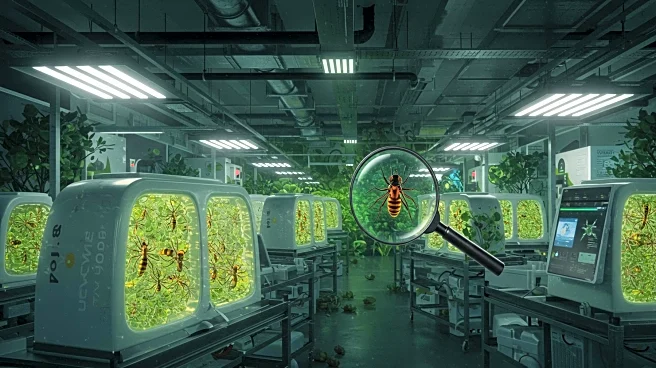What's Happening?
The insect agriculture industry is increasingly using genomics to enhance the domestication and quality control of insects like the black soldier fly and mealworm. These insects are being farmed as sustainable protein sources, capable of growing on organic waste streams, thus reducing the environmental footprint of protein production. Domestication involves breeding insects for desirable traits, similar to historical practices with crops and livestock. However, this process can lead to vulnerabilities, such as reduced immune capabilities, as seen in other domesticated species. Modern genomics offers tools to monitor and manage these risks, ensuring that beneficial traits are retained while minimizing potential downsides.
Why It's Important?
The use of genomics in insect agriculture represents a significant advancement in sustainable farming practices. By optimizing the breeding of insects for protein production, the industry can contribute to reducing reliance on traditional livestock, which has a larger environmental impact. This approach also supports circular agriculture by utilizing organic waste streams, promoting sustainability. The ability to monitor genetic markers allows for proactive management of insect populations, preventing issues like disease outbreaks that can affect monocultures. This innovation could lead to more resilient agricultural systems and provide alternative protein sources to meet growing global demand.
Beyond the Headlines
The application of genomics in insect agriculture highlights broader implications for food security and environmental sustainability. As the industry grows, it may influence cultural perceptions of insect consumption, potentially leading to greater acceptance of insects as a viable protein source. Ethical considerations around genetic manipulation and biodiversity conservation may also arise, prompting discussions on responsible practices in biotechnology. Long-term, this approach could drive shifts in agricultural policy and consumer behavior, fostering a more sustainable and diversified food system.











